Weekly Recommendations & Recap
Things to Watch, Read and Catch Up On
Greetings, All!
Let’s catch up on the latest top headlines, opinions, and recommendations.
Top Videos of the Week
Trump to FIRE Powell as the Fed Prepares to BAILOUT Wall Street After Freak Bond Sell-Off
In April 2025, the U.S. bond market experienced a sharp sell-off, with 10-year Treasury yields surging to levels unseen since 2007. This turmoil reflects growing investor fears over rising U.S. debt, inflation, and uncertainty around Federal Reserve policy and leadership. Trade tensions, especially with China, are adding inflationary pressure, while the Fed’s slow response has fueled doubts about its control. Massive government debt issuance is also flooding the market, driving yields up and bond prices down. Higher yields mean increased borrowing costs for consumers and businesses, raising recession fears. The Fed may intervene to stabilize markets amid mounting economic instability.
China SHUTS DOWN American LNG Deals: US Loses $2.5 Billion as Trade War Tensions Flare Up
China has suspended imports of U.S. liquefied natural gas (LNG) amid escalating trade tensions, effectively creating an embargo as of April 18, 2025. While U.S. LNG accounted for only 6% of China’s imports, the move puts $2.4 billion in trade and several U.S. and Mexican infrastructure projects at risk. China is swiftly replacing U.S. LNG with supplies from Russia, Iran, and others, highlighting its energy flexibility. Analysts warn of potential U.S. job losses and stalled investments. Meanwhile, Europe is buying diverted U.S. cargoes, increasing its reliance on American energy. The trade war’s economic fallout may rival or exceed previous rounds.
Trump Targets Drug Imports: What It Means for U.S. Healthcare Costs
The Trump administration's plan to impose tariffs on pharmaceutical imports could lead to higher drug prices and exacerbate the already struggling U.S. healthcare system. The U.S. heavily relies on pharmaceutical imports, including active ingredients and generic drugs, from countries such as China and India. Tariffs could increase production costs, reduce competition, disrupt supply chains, and delay the availability of generic drugs, ultimately driving up prices for consumers. Meanwhile, the U.S. healthcare system ranks lowest among wealthy nations in terms of access, outcomes, and efficiency, despite having the highest spending. With many Americans uninsured or underinsured, added costs from tariffs may make basic healthcare even more unaffordable for millions.
U.S. LOSING Trade War? Massive 245% Tariff on China as Trump Reveals His Global Isolation Strategy
On April 16, the White House announced a 245% tariff on Chinese imports, escalating an already strained U.S.-China trade war. Despite repeated tariff hikes, the strategy has failed to alter trade dynamics, with China demonstrating a level of resilience and maintaining its global economic influence. Beijing seeks respectful diplomacy and consistency from the United States, while continuing to invest in infrastructure and global partnerships, such as the Belt and Road Initiative. The U.S., meanwhile, risks economic fallout—higher consumer prices, job losses, and diminished global influence. Experts warn this aggressive strategy may backfire, as China remains the top trading partner for over 120 countries and shows no signs of backing down.
BRICS+ Dethrones the West as its Grain Exchange Undermines US Trade Dominance Globally
As trade tensions escalate, the Global South is moving forward with developing platforms to enhance its cooperation opportunities. In 2024, BRICS+ launched the BRICS+ Grain Exchange, quietly revolutionizing global agriculture and trade. With over 50% of the world’s grain production, BRICS+ now trades key staples like wheat, corn, and soy in local currencies, bypassing Western-controlled markets. This shift enhances food security and sovereignty for the Global South, reducing dependence on the U.S. dollar and Western pricing. Like OPEC controls oil, BRICS+ may now influence global food supply and prices. As new members join, the bloc strengthens its position, challenging the West’s dominance and ability to enhance its policy tools with economic measures. This signals a new era in geopolitics where food becomes both leverage and lifeline.
Thank you to all my subscribers for being part of World Affairs in Context. Your support makes the newsletter happen, and your questions, ideas, and suggestions inspire it. Please consider becoming a paid subscriber, which will help contribute to the resources needed to produce more content on the platform. If you’d like to make a one-time contribution, please do so via PayPal or Buy Me a Coffee.
This Week’s Top Headlines
Finance & Economics
U.S. Bond Market Sell-Off: The U.S. bond market experienced a sharp sell-off, with the 10-year Treasury yield rising from 3.86% to 4.5% in just five days, marking its highest level since 2007. This surge in yields has raised concerns about inflation and potential recession, prompting discussions about possible Federal Reserve intervention.
Intensifying U.S.–China Trade War: The U.S. imposed tariffs exceeding 100% on Chinese goods, leading to retaliatory measures from China. The escalating trade war has disrupted global supply chains, increased inflationary pressures, and prompted concerns about a potential global economic slowdown.
UK Chancellor's Visit to Washington: UK Chancellor Rachel Reeves traveled to Washington to attend the IMF Spring Summit and meet with U.S. Treasury Secretary Scott Bessent. The goal of the discussions was to reduce tariffs on British goods and explore a potential free trade agreement, reflecting the UK's strategic pivot in global trade negotiations.
Geopolitics
Xi Jinping's Southeast Asia Tour: Chinese President Xi Jinping visited Vietnam, Malaysia, and Cambodia from April 14–18, 2025, to strengthen diplomatic and economic ties amid escalating U.S.–China trade tensions. The visits aimed to fortify relationships with Southeast Asian nations and counterbalance Western influence in the region.
Italian Prime Minister Giorgia Meloni's visit to the United States: On April 17, 2025, Italian Prime Minister Giorgia Meloni met with U.S. President Donald Trump at the White House. The discussions centered on enhancing U.S.-Italy relations, with Meloni offering strategic cooperation, including increased U.S. gas purchases and encouraging Italian investment in the U.S. Trump praised Meloni as a respected and influential European leader. The meeting presented Meloni as a favored ally in Europe under Trump’s administration .
During the meeting with President Trump, PM Meloni commented that she wants to “make the West great again.”
Witcoff's Visit to France on Ukraine Peace Talks: On April 17, 2025, U.S. Special Envoy for Ukraine, Mark Witcoff, visited France to meet European leaders regarding a potential peace agreement between Ukraine and Russia. The US tried to convince the EU to accept the possibility of negotiations with Russia; while the EU tried to convince the US to prolong the conflict.
The US continues to bomb Yemen, without Congressional approval: The Trump administration carried out multiple airstrikes across Yemen, including on the capital, Sana’a, and civilian infrastructure, Yemen’s Ras Isa oil port, killing dozens of innocent civilians, including paramedics who had arrived on the scene to rescue the victims. Two American strikes murdered 58 people and injured 126. Yet, there is no public condemnation in the US of such extreme violence and loss of innocent lives. Despite heavy losses, Yemen continues to support Palestinians.
Israel continues to block food, water, and humanitarian aid to Gaza: more than 40 days without water, food, or basic necessities result in famine spreading in Gaza and a lack of medical supplies to treat the wounded and the sick.
On Saturday, April 19th, the Kremlin unilaterally proposed an Easter ceasefire, effective from 6 pm on April 19th to 12 am on April 21st. President Putin’s proposal underscores the importance of Easter in Eastern Orthodoxy and Russia’s readiness to proceed with meaningful negotiations. Zelensky, on the other hand, appeared taken aback by the proposal and, after reacting negatively to it, accepted the Easter truce.
Remember to tune in to World Affairs in Context for more news, analysis, and upcoming interviews available on YouTube, Rumble, Patreon, Locals, and now Spotify.
Thank you to all my subscribers for being part of World Affairs in Context. Your support makes the newsletter happen, and your questions, ideas, and suggestions inspire it. Please consider becoming a paid subscriber, which will help contribute to the resources needed to produce more content on the platform. If you’d like to make a one-time contribution, please do so via PayPal or Buy Me a Coffee.




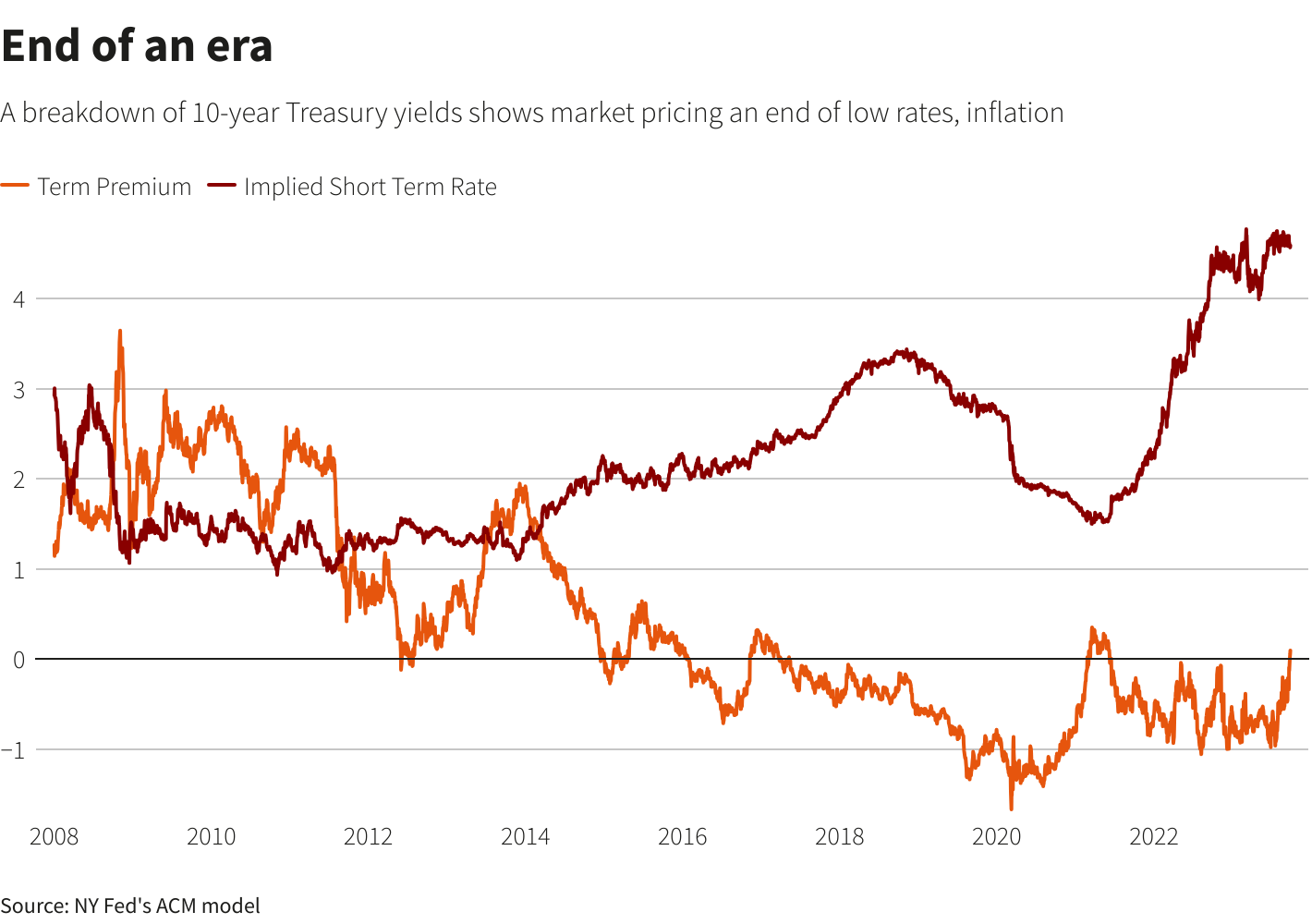
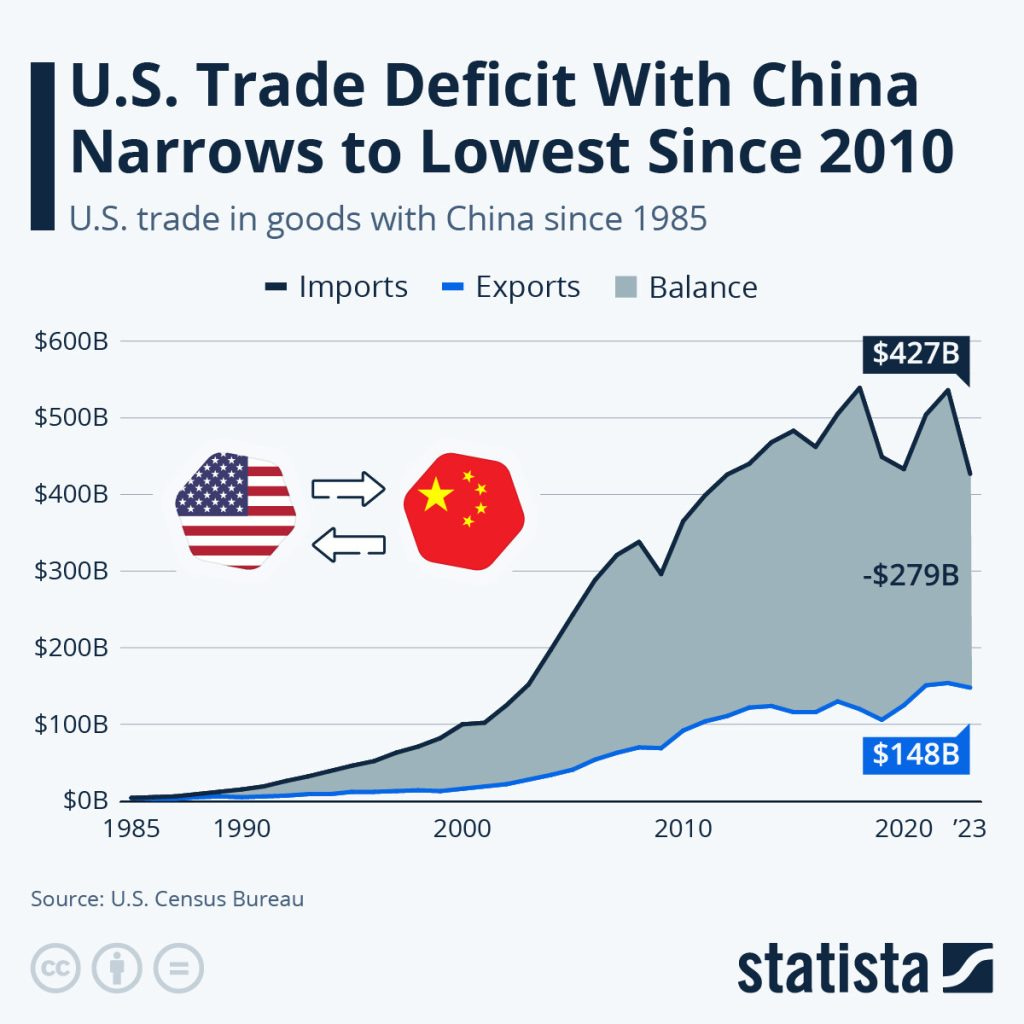
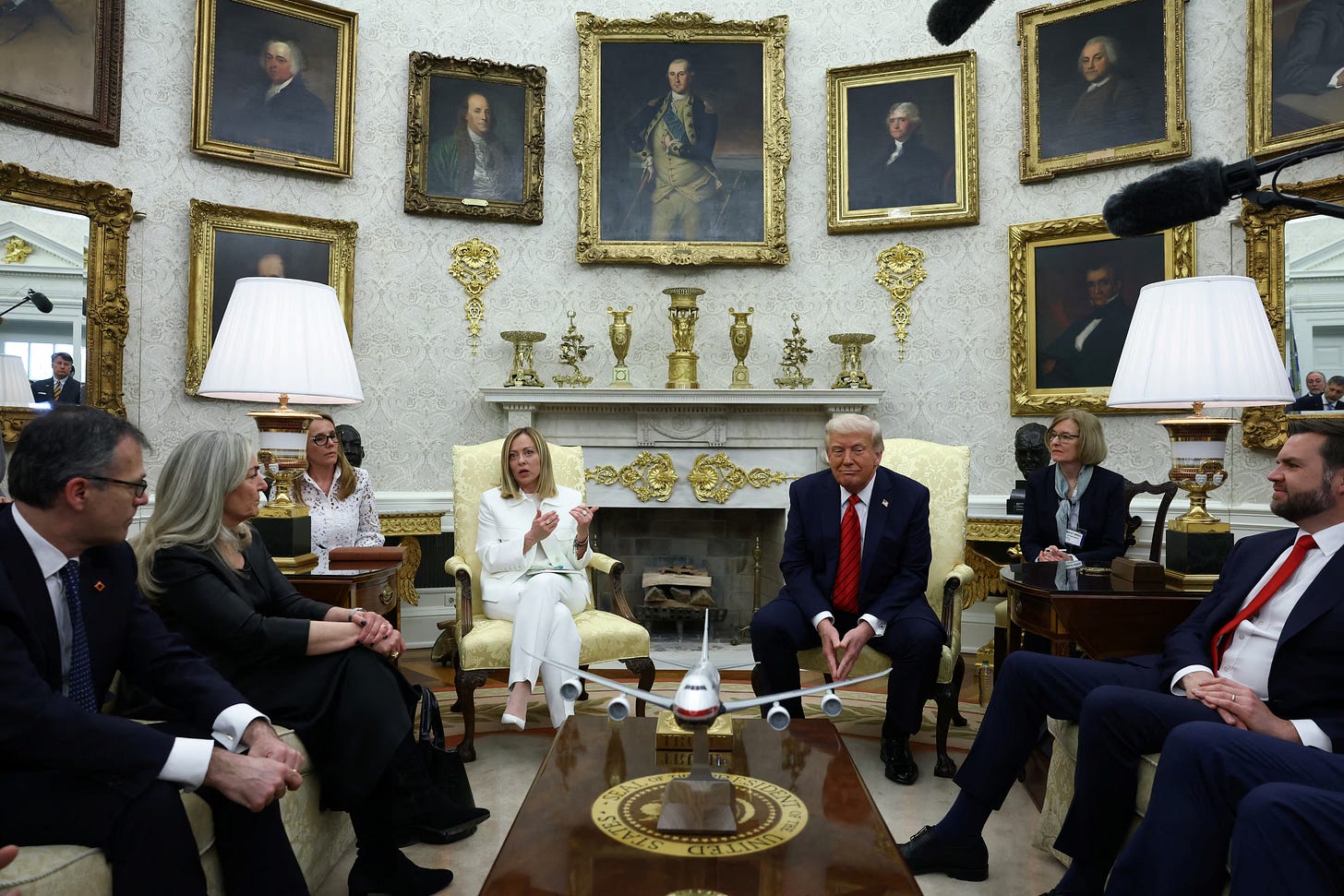
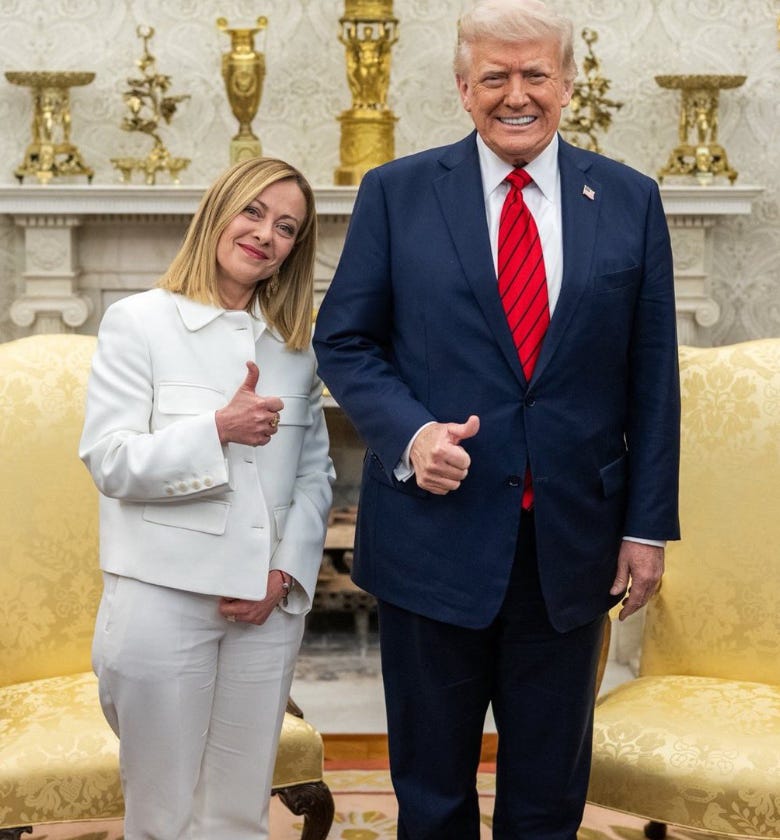
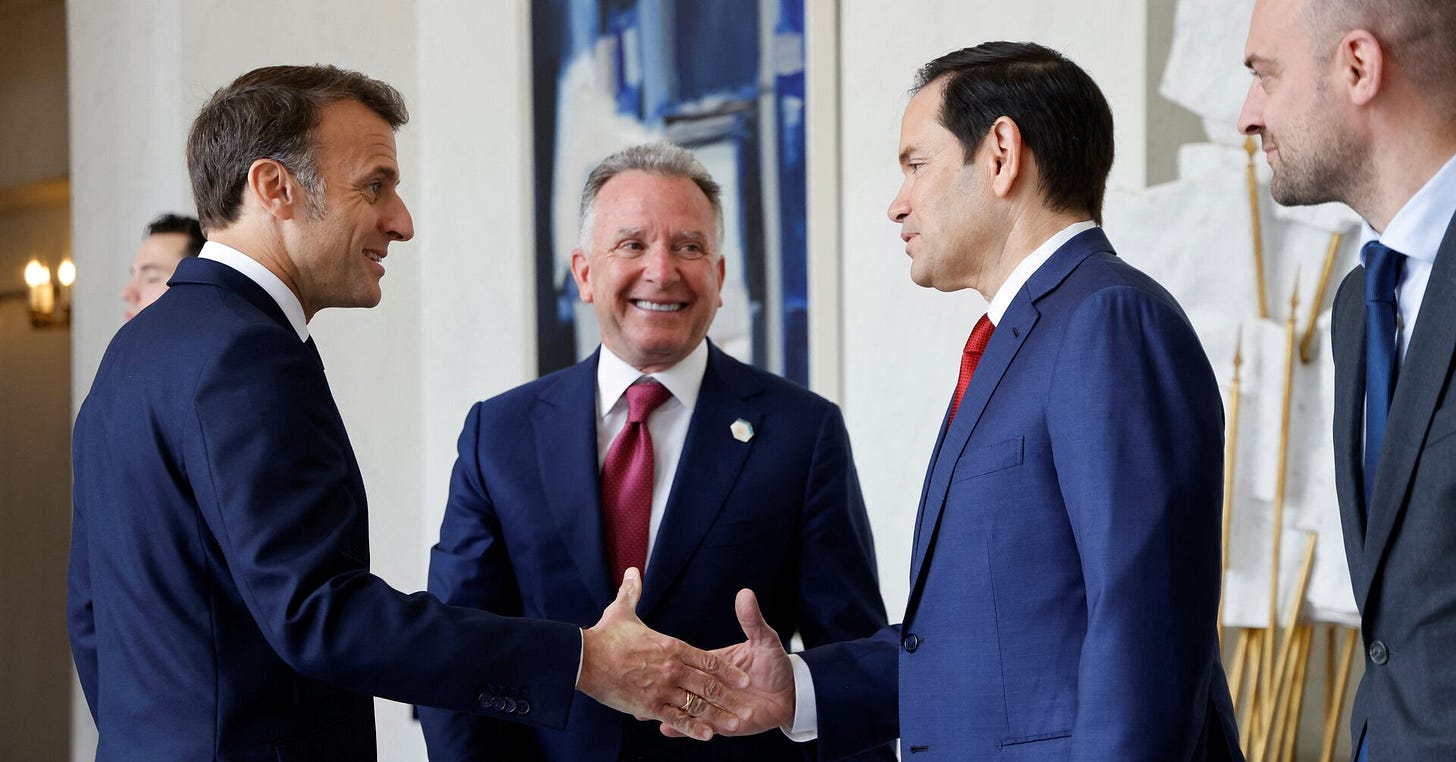


You might like this video by analyst Brian Berletic, in which he demonstrates that Trump's seemingly insane policy actions are actually derived from a think tank's strategy paper, and shows continuity with Biden administration policy.
https://www.youtube.com/watch?v=NSWMEc8J88Y
There are links to all of the points made. I think Brian would be willing to discuss further in an interview.
“Scientists Think the Universe Is a Quantum Computer-Here’s The Physics Behind It!” (44 min)
Fexl. Apr 19, 2025
https://youtu.be/PONu9_8rFfI?si=CuY9G--TPUZMaqQ0
(41:47 min point) “What If Everything Is Information, And Everything Evolves By The Rules That Information Follows? But this also sets a boundary because if the universe is a computation then there are things we may never know. Not because we’re not clever enough but because some things are unsolvable from inside the system.”
“Freedom and God are objects of faith, not of knowledge; in other words, freedom and God are infinite abysses whose bottoms cannot be sounded by knowledge.” Simone Weil. French Christian mystic. 1909-1943
“Infinite and finite, complex and simple, He is nature above nature, being above being. Maker of all, he is made in all, Unmoving, he enters the world, Timeless in time, unlimited in limited space, And he who is no thing becomes all things.” Eriugena, medieval theologian.